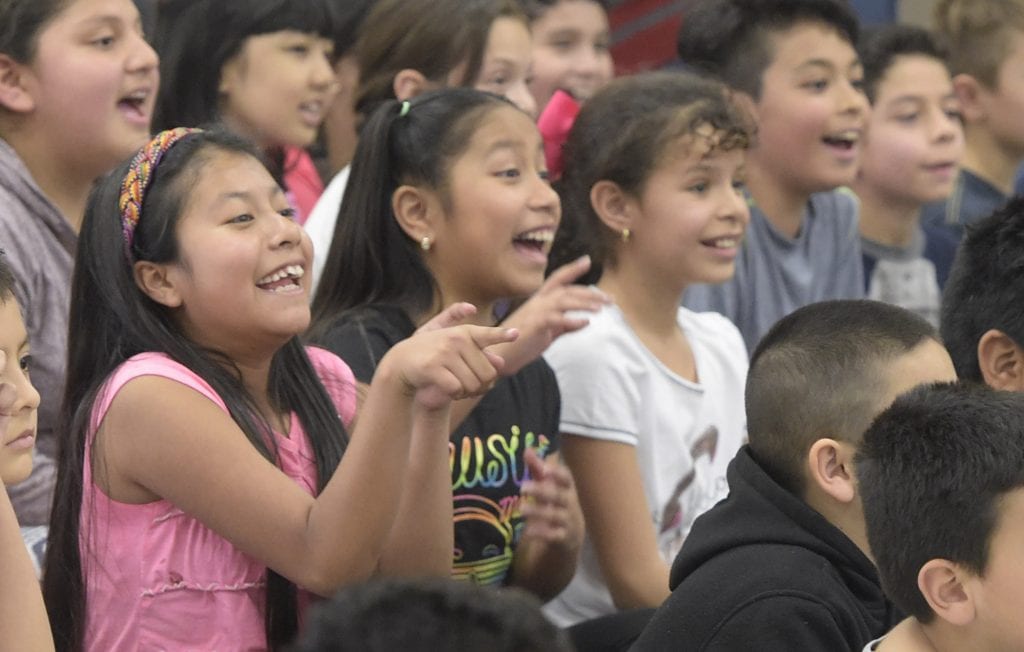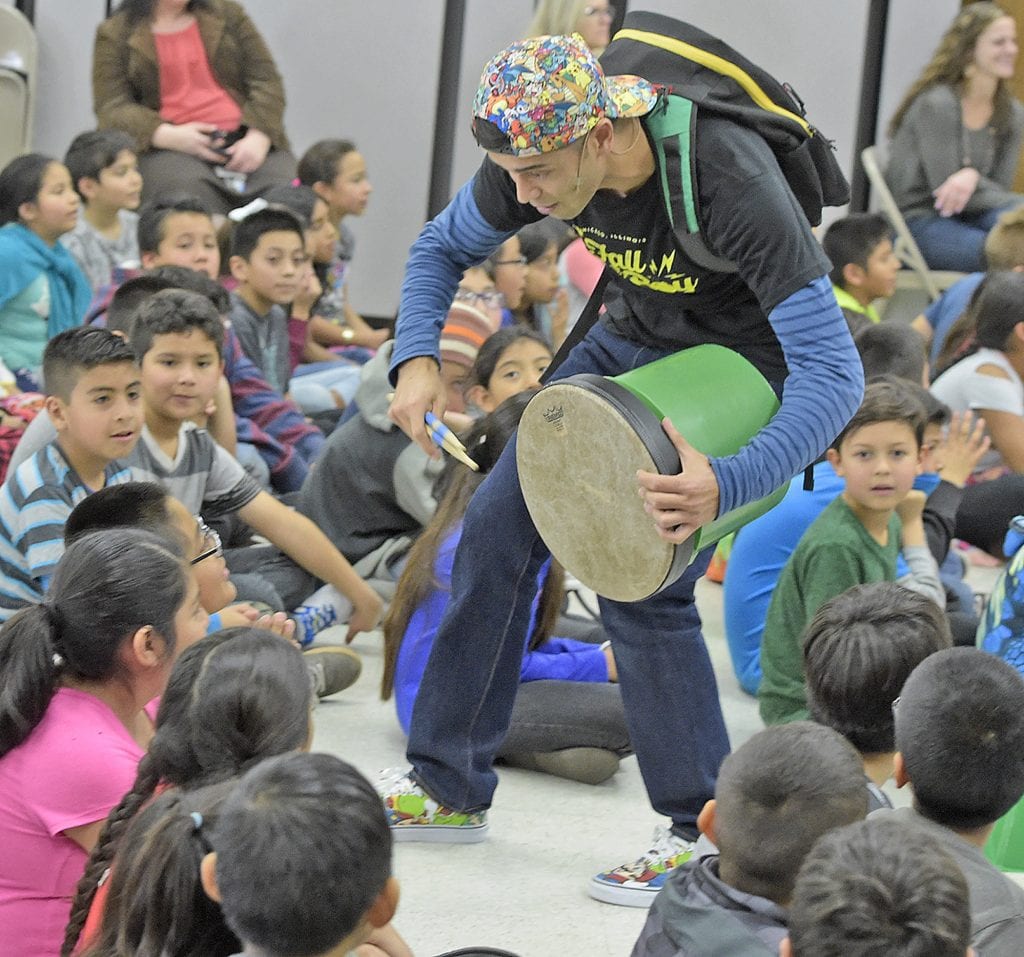Educators and health professionals are using an interactive and engaging theatre performance to teach children conflict management skills to support healthy living at a young age.
“It’s Stop Time,” presented by Kaiser Permanente’s Educational Theatre Program, promotes self-efficiency, interpersonal skills and decision making while sharing the play’s message of “Stop, Breathe, Choose.”
Two performances of the play were shown to third, fourth, fifth and sixth grade students at Newhall Elementary School Thursday afternoon.
“We’re excited to bring a theatre component to conflict management and solutions,” Newhall School Counselor Lorena Ramos said. “We are excited to bring the skill building of teaching our students to stop, breathe and choose.”

“It’s Stop Time” follows four characters—Diego, Nicole, Soledad and Reggie—after they are put in detention by their new teacher Mr. C after they were caught fighting with one another.
In detention, the students enter a magical room that will not let them out until they learn to work together and solve their differences.
“I caught you fighting, which is never an acceptable way to solve your differences,” said Mr. C, played by Billoah Greene. “If you want to get out of here you have to come up with three steps to control your anger.”

Early-on in the performance, the play breaks the fourth wall to encourage student participation and audience interaction as actors search for clues, like clocks in the shape of stop signs and posters that turn into words, on set.
During the performance, students learned the play’s buzzwords of “stop, breathe, choose” and would shout the commands to characters if they began fighting with each other or if they needed help remembering what to do in a conflict situation.
“We want the audience to be ahead of us so they can feel successful when they get the actions right,” said Gerry Farrell, director of the Kaiser Permanente Educational Theatre.
The play also keeps children engaged in what would normally be a lackluster subject by using bright lights, props, fog machines, props, singing, dancing and drumming.
“Our goal is really trying to be developmentally appropriate for the age level we are in front of…. and to make them feel included in what we are doing on stage,” Farrell said. “We try to keep it engaging and fun.”
Farrell said Kaiser Permanente Educational Theatre began developing the play years ago to deliver a lesson in a non-verbal way that engaged students’ attentions and emotions.
“Even if they just get the stop part, it’s a good step for managing anger and stress,” she said. “The play teaches them empathy skills.”
Performers also hope the students identify with one of the characters or with the teacher-student relationship so they can better integrate the lessons into their daily lives.

The program also offers a parent component to teach stress management skills to adults in community.
“The show leaves parents with tools that reinforce what they’re already doing and reminds them to take time for themselves,” Farrell said.
Through the program, the team at the Kaiser Permanente Educational Theatre Program hopes the performances teach children and teachers new ways to address high-stress situations.
“Now you have something you can refer back to and support what you might have been saying all along,” Farrell said.
[email protected]
661-287-5575
On Twitter as @_ChristinaCox_








